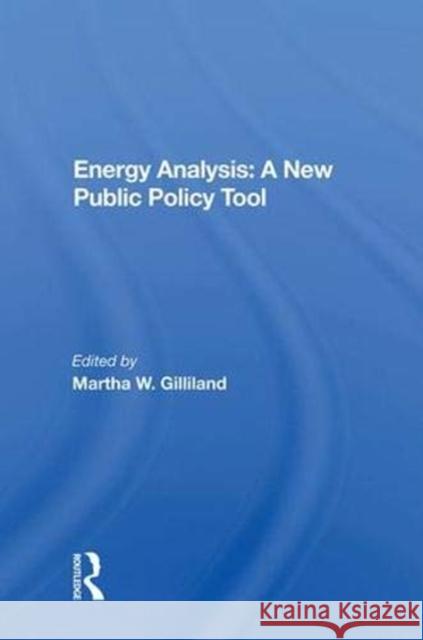Energy Analysis: A New Public Policy Tool » książka
Energy Analysis: A New Public Policy Tool
ISBN-13: 9780367021221 / Angielski / Twarda / 2019 / 128 str.
Energy Analysis: A New Public Policy Tool
ISBN-13: 9780367021221 / Angielski / Twarda / 2019 / 128 str.
(netto: 715,64 VAT: 5%)
Najniższa cena z 30 dni: 654,86
ok. 16-18 dni roboczych.
Darmowa dostawa!
The aim of energy analysis is to quantify the energy flows inherent in all systems. As applied to economic systems, it is concerned with the energy flows inherent in the production of goods and services. The claims made for the policy utility of that energy flow information, however, vary across a wide spectrum. The papers included in this symposium volume represent and reflect that spectrum of claims. In setting the stage for these papers, this intro-duction will sketch the areas of agreement and disagreement around which the energy analysis debate revolves. In delineating the nature and substance of the contro-versy over using energy analysis as a policy tool, it is convenient to distinguish between analyses at the micro level and at the macro level. This distinction applies both to the system level at which the analysis is carried out and to the system level to which results are applied. That is, analyses may be carried out for the purpose of comparing two indus-trial processes for producing the same commodity or for the purpose of identifying process changes which would change the energy costs of production (micro analysis) or they may be carried out for the purpose of identifying the contri-bution a technological system set in its environmental context makes to U. S. socioeconomic well-being (macro analysis).











